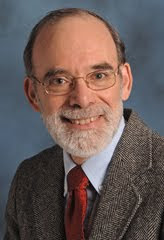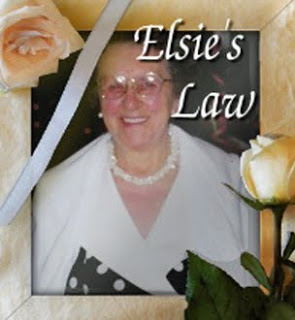
After media wrote about an alleged undeclared conflict of interests between several high profile doctors and pharmaceutical industry American Psychiatric Association (APA) did the decent thing and formed a working party of 11 members which was chaired by Dr Appelbaum (photo on the left) who was once President of American Psychiatric Association. They proposed 14 items designed to regulate and significantly curtail psychiatrists' relationship with pharmaceutical industry. Before it was due to be debated at National Assembly of APA, the reference committee rejected it.
One of the younger members of APA pushing for recommendations is Dr Sonkiss who stated:
"Progress is not gained without struggle. "Almost every major historical landmark of progress — the abolition of slavery, child labor reform, women's suffrage, civil rights — has been divisive, but each was accomplished because it was the right thing to do. Whether it is divisive or not, passing the Appelbaum report is also the right thing to do."
Dr Appelbaum's opinion is: "Ironically, it appears to be very difficult for many psychiatrists to accept the notion that these maybe influences on their behaviour that are outside their conscious perception".
Well, we know that people are motivated by pleasure. There is pleasure of taking from pharmaceutical industry as well as pleasure of giving something back. It does not have to be unconscious. However, declaring conflicts of interests is demotivating business. Fear of being viewed with suspicion after declaring conflicts of interests can motivate psychiatrists to not declare any conflicts of interests.
There would be psychiatrists who would not be influenced by gifts from pharmaceutical industry but that requires resistance to pleasure of giving something back just because one has received something. And when it comes to resistance we are not the same.
Pharmaceutical industry has sponsored research where the findings were critical of the medication and this was published many times. Psychiatrists in these cases were not influenced negatively by conflicts of interests and did declare them.
In a simplistic world of regulation, complexities can be ignored and Applebaum report is to be discussed further by APA in September 2010. I predict it will be adopted in modified form.
In an ideal world, many more conflicts of interests would have to be declared eg religious, political, gender bias etc. Psychiatrists know only too well why they should do it.
Self-regulation does have big holes in it. For public to have confidence in medical profession, it is important that these conflicts of interests are not only declared but also examined by independent people for the right mechanisms to be put in place to prevent serious injustice to many including pharamaceutical industry.
There is no, for example, assessment of the conflict of interests by regulatory bodoes in UK. It is not enough just to declare it.
Some members of one regulatory body also sit at others. This is another source of numerous conflicts of interests.
Secrecy is dysfunctional and so is lack of intimacy. Once conflicts are declared it is silly to leave it just to those who declared it to deal with their conflicts as they see fit.
Some people should be actively prevented from taking up some forms of work. European Council did well in that respect by excluding some people such as religious extremists whose views were not compatible with the law and more specifically Human Rights.




0 comments:
Post a Comment